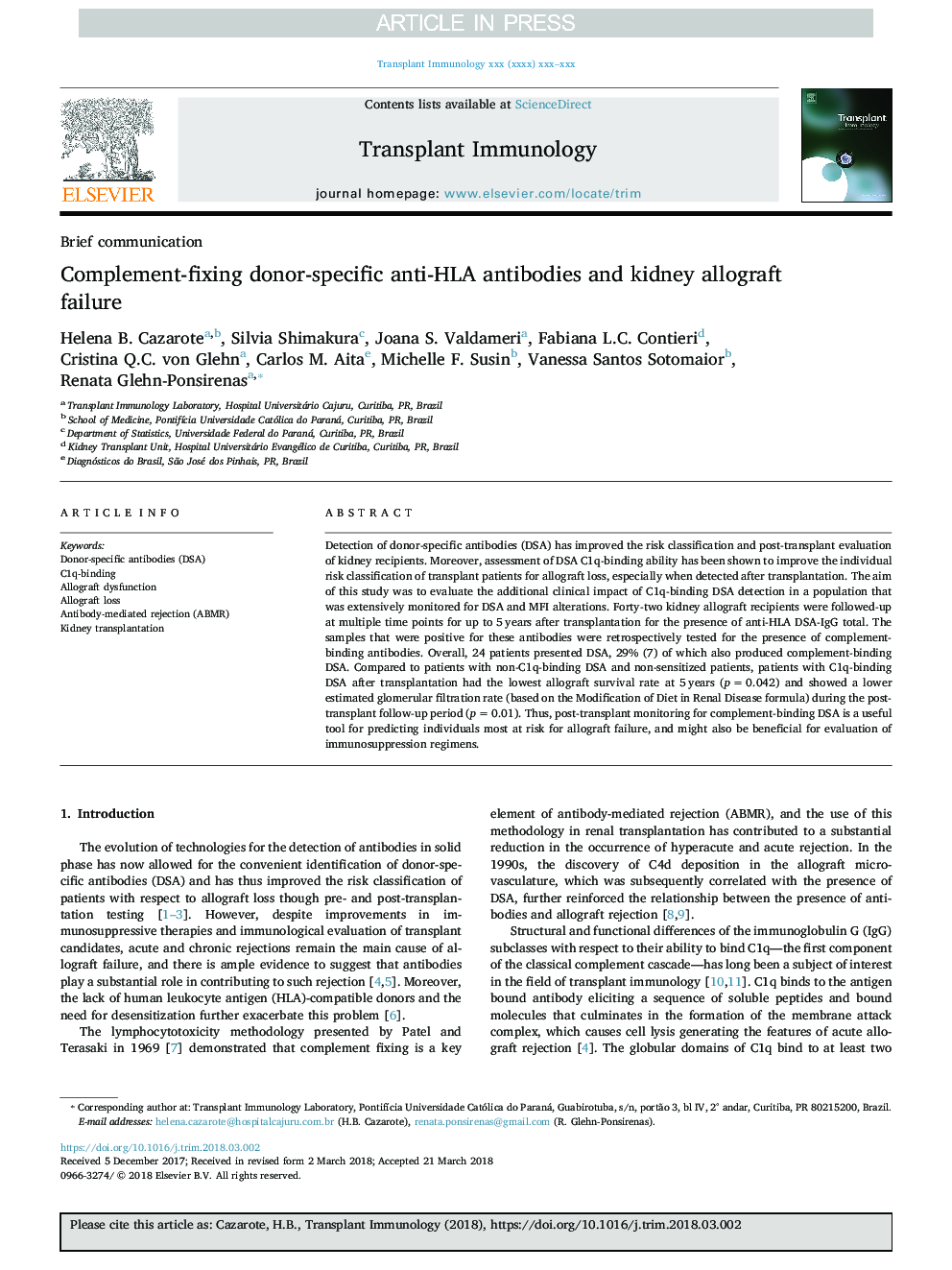| Article ID | Journal | Published Year | Pages | File Type |
|---|---|---|---|---|
| 8743767 | Transplant Immunology | 2018 | 6 Pages |
Abstract
Detection of donor-specific antibodies (DSA) has improved the risk classification and post-transplant evaluation of kidney recipients. Moreover, assessment of DSA C1q-binding ability has been shown to improve the individual risk classification of transplant patients for allograft loss, especially when detected after transplantation. The aim of this study was to evaluate the additional clinical impact of C1q-binding DSA detection in a population that was extensively monitored for DSA and MFI alterations. Forty-two kidney allograft recipients were followed-up at multiple time points for up to 5â¯years after transplantation for the presence of anti-HLA DSA-IgG total. The samples that were positive for these antibodies were retrospectively tested for the presence of complement-binding antibodies. Overall, 24 patients presented DSA, 29% (7) of which also produced complement-binding DSA. Compared to patients with non-C1q-binding DSA and non-sensitized patients, patients with C1q-binding DSA after transplantation had the lowest allograft survival rate at 5â¯years (pâ¯=â¯0.042) and showed a lower estimated glomerular filtration rate (based on the Modification of Diet in Renal Disease formula) during the post-transplant follow-up period (pâ¯=â¯0.01). Thus, post-transplant monitoring for complement-binding DSA is a useful tool for predicting individuals most at risk for allograft failure, and might also be beneficial for evaluation of immunosuppression regimens.
Related Topics
Life Sciences
Immunology and Microbiology
Immunology
Authors
Helena B. Cazarote, Silvia Shimakura, Joana S. Valdameri, Fabiana L.C. Contieri, Cristina Q.C. von Glehn, Carlos M. Aita, Michelle F. Susin, Vanessa Santos Sotomaior, Renata Glehn-Ponsirenas,
